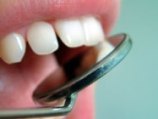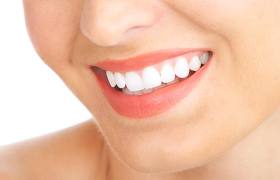Laurie DeRosa RDH
Integrative Health Blog
Healthy Mouth, Healthy Body
Believe it or not, when we are taking care of our teeth and mouth we are taking steps to a healthy body.
Daily home care for our teeth and gums is important and not just for the obvious reasons of keeping our teeth for a lifetime and not having bad breath, but a healthy mouth contributes to overall good health.
Natural Dental Products for Healthy Teeth and Gums
Read MoreTags: health products, integrative health, dental health, periodontal disease, gum disease
Laurie DeRosa RDH
XYLITOL is a natural ingredient that can help to reduce bacteria and fight tooth decay. It first became popular in Europe as an alternative for people with diabetes. It is found in natural resources such as birch trees, corn, vegetables and fruits. The most common source today is corn cobs and corn stalks. The body makes 5-10 grams of xylitol every day.
How Xylitol Works
Xylitol works by preventing the bad bacteria in your mouth from making acids. When this occurs the bacteria cannot stick to each other or our teeth. The bacteria cannot talk to each other thereby preventing the formation of biofilm. Research shows that xylitol starves the unhealthy bacteria which allows the mouth to re-mineralize teeth that are damaged, which in turn makes the teeth better able to resist decay.
Xylitol is safe for diabetics, has a glycemic index of 7, and does not use insulin for metabolism. It has only 9.6 calories per teaspoon vs. 15 calories for regular sugar.
Since the bacteria that causes tooth decay is transmissible it has been recommended that a mother use Xylitol daily for the first two years of their child’s life. Children whose mother used Xylitol are less likely to need teeth restored at age five.
Tags: integrative health, dental health, plaque, biofilm
Tags: biological dentistry, holistic approach, dental health, periodontal disease, gum disease, holistic dentistry
Tags: biological dentistry, integrative health, integrative medicine, dental health, periodontal disease, plaque, biofilm, integrated health
Laurie DeRosa RDH
First, what is biofilm?
Biofilm is a collection of many types of bacteria surrounded by a slimy substance that can stick to most everything. Biofilms can be found in our bathrooms, on our kitchen countertops, cutting boards and yes, the kitchen sink.
Over 900 types of bacteria can live in our mouths but not all at the same time. There are usually 100-200 species on different surfaces at any given time. The bacteria on our teeth are different than those on the gums, cheek and tongue. Different sides of a single tooth can have different biofilms.
The plaque that forms on our teeth is a type of biofilm. Biofilms play an important role in the health of your mouth. Basically, biofilms are bacterial cells that will team up on and around your teeth and under your gums forming clusters of unhealthy bacteria. If left alone, these bacteria will become toxic. The cells actually feed off each other and if left undisturbed, will multiply and can cause periodontal disease.
So how do I get this plaque biofilm off my teeth?
Daily brushing and flossing is the best way. The surfaces of the teeth and gums need to stay consistently clean in order to keep the bacteria from becoming toxic.
You need to see your dental hygienist regularly so that any plaque that has worked its way down into your gums can be removed. If it is left down under for too long plaque will harden. You may have heard the terms "calculus" or "tartar" from your hygienist or tv commercials. This is what plaque is called after it hardens. Tartar is unhealthy and cannot be removed at home. It will cause inflammation which can destroy the gums. It only takes 24 hours for plaque to harden. Left on the teeth and surrounding gums for too long leads to gum disease.
How can I prevent gum disease?
Tags: dental health, periodontal disease, plaque, biofilm, gum disease
by Mark McClure DDS, FACG
Biological Dentistry is Whole person dentistry:
Whole - person dentistry, which is gaining understanding and support among the public and professionals, is the awareness of the intricate web-like relationships between dentistry and one’s general health and wellbeing. Its practitioners have advanced skills and knowledge in intervening to regain and maintain patient’s health. The whole - person dentist will embraces other descriptive terms like holistic, integrative medical and biological dentist. The whole - person dentist must wear multiple hats – first he/she is conventionally trained, incorporating the best developing dental technologies and aesthetics that modern dentistry offers but there is much more to a holistic dental approach.
Biological Natural Dentistry
Whole person, Biological Dentistry refers to routinely using biological (or natural) products and principles to help people be healthier more effectively and efficiently. The use of herbs, super-foods, nutrients, drainage remedies and homeopathics, and oxygen- ozone (as well as drugs and surgery when needed) in routine and specialty dental services defines the whole body approach that is employed. In summary, the principles of biological dentistry is treatments that are safe and effective, non-toxic with little or no side-effects, allowing the patient to heal themselves and ultimately reaching a state of biologic homeostasis - meaning health.
Tags: biological dentistry, integrative health, holistic approach, integrative medicine, dental health, holistic dentistry
.png?width=305&height=132&name=NIHAlogoBLUE_3_transparent%20(2).png)




